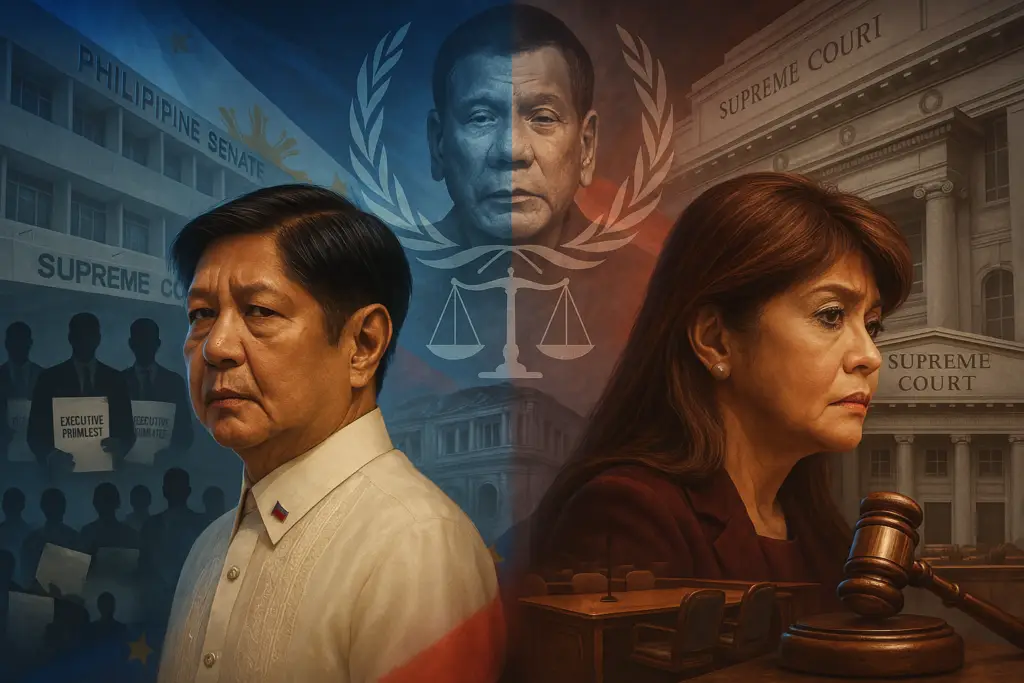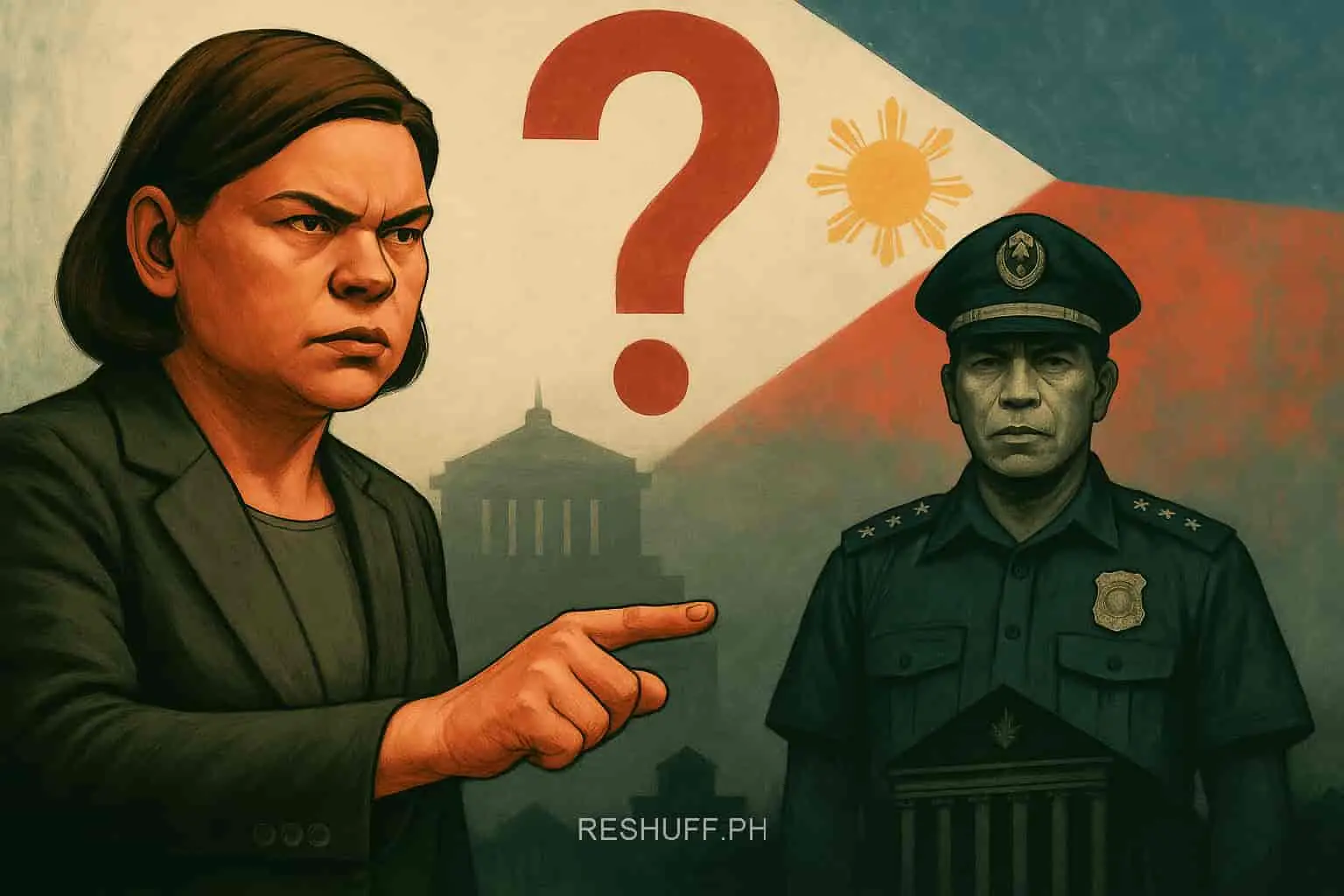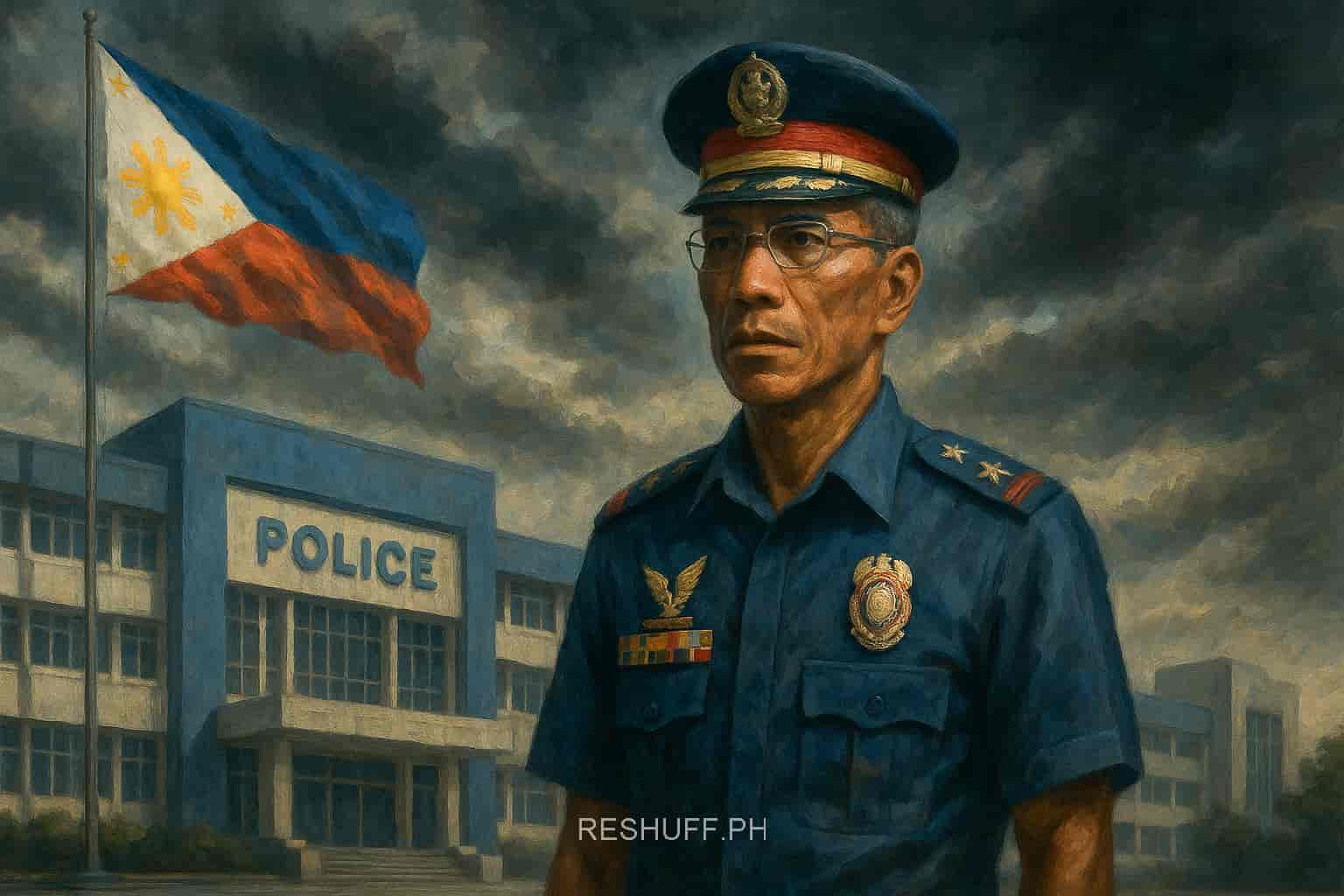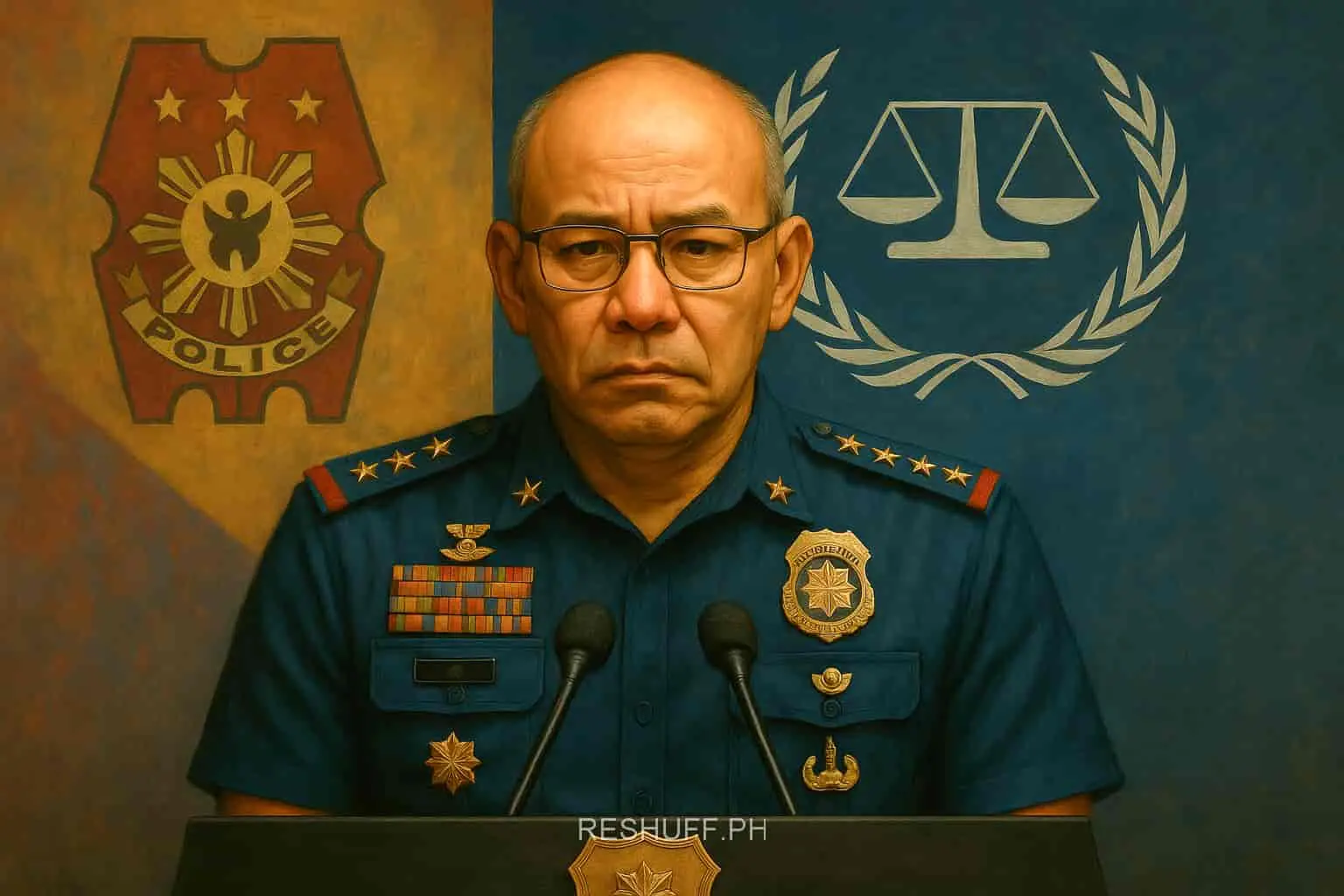Key Points
- It seems likely that the Marcos Cabinet will skip Senator Imee Marcos’s Senate hearing on April 2, 2025, regarding former President Rodrigo Duterte’s ICC arrest, citing executive privilege.
- The decision is controversial, with legal debates around executive privilege and past precedents, such as the 2006 Supreme Court ruling on Arroyo’s directive.
- Research suggests Duterte is detained at the ICC for murder charges related to his war on drugs, with a pre-trial hearing scheduled for September 23, 2025.
Background
The hearing, led by Senator Imee Marcos, follows Duterte’s arrest on March 11, 2025, and aims to investigate potential rights violations. The first hearing on March 20, 2025, discussed government cooperation with Interpol, but the Cabinet declined further attendance, citing four pending Supreme Court petitions on the arrest’s legality.
Cabinet’s Decision
Executive Secretary Lucas Bersamin’s letter on March 31, 2025, stated all non-privileged matters were covered, comparing this to the 2021 Duterte administration’s snub of Pharmally hearings, which faced legal challenges. This move has sparked debate over transparency and accountability.
Unexpected Detail: Family Dynamics
An unexpected aspect is Imee Marcos quitting her brother’s senatorial slate after finding “glaring violations” of Duterte’s rights, highlighting political and family tensions.
Survey Note: Detailed Analysis of Marcos Cabinet’s Decision to Skip Senate Hearing on Duterte’s ICC Arrest
The Marcos Cabinet’s decision to skip the upcoming Senate hearing on April 2, 2025, led by Senator Imee Marcos, regarding the arrest and surrender of former President Rodrigo Duterte to the International Criminal Court (ICC) has stirred significant legal and political discourse. This note provides a comprehensive examination of the event, drawing from recent reports and historical context to ensure a thorough understanding.
Context of the Hearing
The Senate hearing, chaired by Senator Imee Marcos, sister to President Ferdinand Marcos Jr., is part of an investigation into Duterte’s arrest on March 11, 2025, at Manila airport and his subsequent turnover to the ICC. The first hearing, held on March 20, 2025, focused on the Marcos government’s cooperation with Interpol and whether Duterte’s rights under local and international laws were respected (Marcos Cabinet to skip Imee’s Senate hearing on Duterte arrest). Senator Marcos, heading the Senate foreign affairs committee, emphasized the need to establish due process, given the arrest’s divisive impact on the nation (Philippines Senate launches investigation into Duterte’s ICC arrest).
Duterte’s arrest stems from ICC charges of crimes against humanity, specifically murder, linked to his war on drugs from 2016 to 2022, which allegedly resulted in thousands of deaths, often of poor men without proven drug links. He is the first Asian former head of state charged by the ICC, with a pre-trial hearing scheduled for September 23, 2025, to confirm or deny the charges (What happens before September 2025 Duterte International Criminal Court; Rodrigo Roa Duterte makes first appearance before the ICC).
Cabinet’s Decision and Legal Basis
On March 31, 2025, Executive Secretary Lucas Bersamin sent a letter to the Senate, declining attendance at the April 2 hearing, citing executive privilege. The letter, addressed to Senate President Francis Escudero and Senator Marcos, stated that all matters not covered by executive privilege were extensively discussed during the first hearing, and further participation could risk violating the sub judice rule due to four pending Supreme Court petitions questioning the arrest’s legality (Marcos Cabinet declines further Senate hearings on Duterte arrest). Bersamin noted, “Nevertheless, we remain available to extend our full cooperation through other appropriate channels, should there be any further clarifications required within the bounds of the law,” indicating a willingness to engage outside the hearing framework.
This decision has drawn comparisons to the 2021 Duterte administration’s refusal to attend Senate hearings on the Pharmally pandemic procurement scandal. Then-Executive Secretary Salvador Medialdea directed officials to focus on COVID-19 efforts, a move branded unconstitutional by senators, referencing a 2006 Supreme Court ruling on then-President Gloria Arroyo’s directive. That ruling upheld executive privilege for matters like national security but allowed congressional attendance otherwise, with parts of Arroyo’s directive struck down (Executive officials ignore Senate hearing after Duterte memo October 2021). The Senate’s 2021 petition against Duterte’s ban was dismissed in July 2022 on technical grounds, leaving the 2006 precedent intact (Senate runs to Supreme Court to void Duterte ban on hearings for cabinet members).
Legal and Political Implications
The invocation of executive privilege has reignited debates over transparency and accountability. Constitutional advocates have long scrutinized its parameters, particularly for national security matters, and it remains uncertain whether the Senate or Senator Marcos will challenge this decision legally. The presence of pending Supreme Court petitions adds complexity, potentially delaying resolution and fueling controversy over government openness (Cabinet officials to skip next Senate probe on Duterte arrest: Imee).
Senator Marcos, after the March 20 hearing, released preliminary findings, stating there were “glaring violations” of Duterte’s rights and that constitutional safeguards for liberty and due process were not observed. This led her to quit Marcos Jr.’s senatorial slate, highlighting a rift within the family and administration, an unexpected detail given their political ties (Imee Marcos exits Alyansa Marcos Jr administration Senate slate). This family dynamic adds a layer of political tension, especially with midterm elections approaching in May 2025.
Recent X posts from late March 2025, such as one from @_michsantos (Imee Marcos on government’s ICC assistance) and @bncdotph (Senate panel on Duterte ICC arrest), reflect public interest in Imee’s role, reinforcing the controversy around government cooperation with the ICC.
Historical Context and Comparisons
The 2006 Supreme Court ruling on Arroyo’s directive, which allowed executive officials to seek presidential consent before congressional hearings but upheld privilege for sensitive matters, provides legal grounding for Bersamin’s stance (Executive Order No. 464, 2005). However, the 2021 Pharmally case, where Duterte’s Cabinet snubbed hearings, faced criticism for undermining legislative oversight, with senators arguing it violated the 2006 precedent. The dismissal of the Senate’s petition in 2022 on technical grounds did not address the merits, leaving room for future legal battles (Duterte seeks to block cabinet witnesses from appearing in Senate probe pandemic).
Table: Key Dates and Events
| Date | Event |
|---|---|
| March 11, 2025 | Duterte arrested at Manila airport, turned over to ICC. |
| March 20, 2025 | First Senate hearing on Duterte’s arrest, discussing Interpol cooperation. |
| March 31, 2025 | Bersamin’s letter declines Cabinet attendance at April 2 hearing. |
| April 2, 2025 | Second Senate hearing scheduled, Cabinet to skip. |
| September 23, 2025 | Duterte’s ICC pre-trial hearing to confirm or deny charges. |
Conclusion
The Marcos Cabinet’s decision to skip the April 2, 2025, hearing reflects a strategic use of executive privilege, echoing past controversies but with added legal finesse, as noted in Bersamin’s letter. The ongoing Senate investigation, Duterte’s ICC detention, and family political dynamics underscore the complexity of this issue, with potential implications for Philippine governance and international relations.
Key Citations
- Marcos Cabinet to skip Imee’s Senate hearing on Duterte arrest
- Cabinet officials to skip next Senate probe on Duterte arrest: Imee
- Philippines Senate launches investigation into Duterte’s ICC arrest
- Marcos Cabinet declines further Senate hearings on Duterte arrest
- Executive officials ignore Senate hearing after Duterte memo October 2021
- Senate runs to Supreme Court to void Duterte ban on hearings for cabinet members
- Executive Order No. 464, 2005
- Imee Marcos exits Alyansa Marcos Jr administration Senate slate
- What happens before September 2025 Duterte International Criminal Court
- Duterte seeks to block cabinet witnesses from appearing in Senate probe pandemic
- Imee Marcos on government’s ICC assistance
- Senate panel on Duterte ICC arrest
- Rodrigo Roa Duterte makes first appearance before the ICC





2 Responses